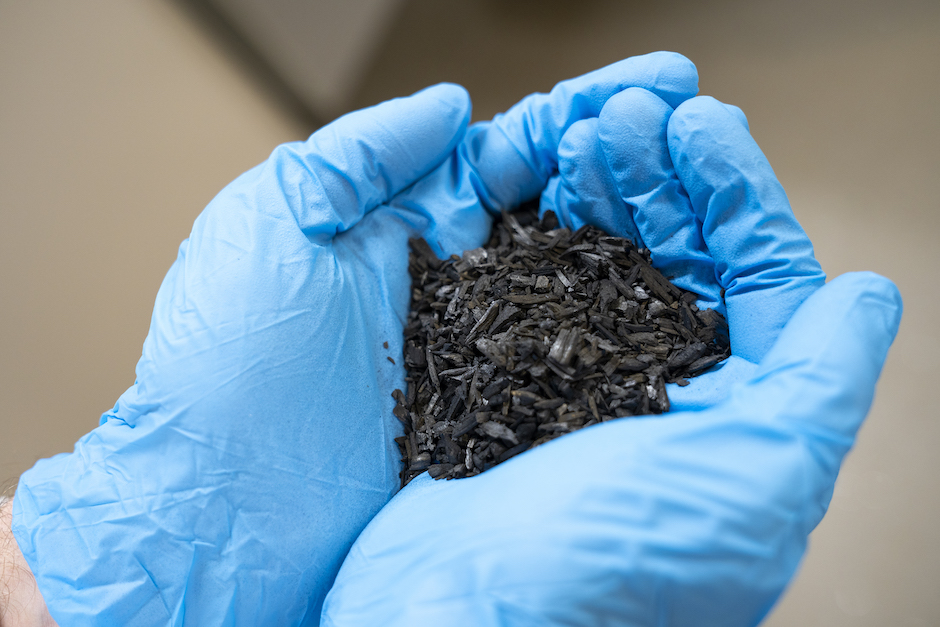Study to explore use of biochar for CO2 removal
Nottingham University is leading a £4.5m trial, exploring the viability of the material biochar for storing CO2 from the atmosphere to fight climate change.

The study is one of five UKRI-funded projects aiming to cut emissions in line with the government’s 2050 net zero target, through the use of Greenhouse Gas Removal (GGR) technologies.
Biochar is produced by heating organic biomass from agriculture and forestry waste in the absence of oxygen (pyrolosis), making it carbon-rich and chemically stable. Currently produced on a small scale in the UK and used as a mulch for horticulture, the substance is similar to commercial-grade charcoal used on BBQs but should be produced at higher temperatures to produce stable carbon.
“The aim is to take carbon from the atmospheric emissions and trap it in the biochar,” said project lead professor Colin Snape, director of the EPSRC Centre of Doctoral Training in Carbon Capture and Storage and Cleaner Fossil Energy.
“That carbon will then be locked in the soil for centuries, if not millennia, so its sustainable production could be a powerful tool in the fight against climate change. However, we need to get a detailed and accurate picture of the longevity and stability of biochar carbon in soils to ensure it has no detrimental impact.”
Register now to continue reading
Thanks for visiting The Engineer. You’ve now reached your monthly limit of news stories. Register for free to unlock unlimited access to all of our news coverage, as well as premium content including opinion, in-depth features and special reports.
Benefits of registering
-
In-depth insights and coverage of key emerging trends
-
Unrestricted access to special reports throughout the year
-
Daily technology news delivered straight to your inbox










Water Sector Talent Exodus Could Cripple The Sector
Well let´s do a little experiment. My last (10.4.25) half-yearly water/waste water bill from Severn Trent was £98.29. How much does not-for-profit Dŵr...